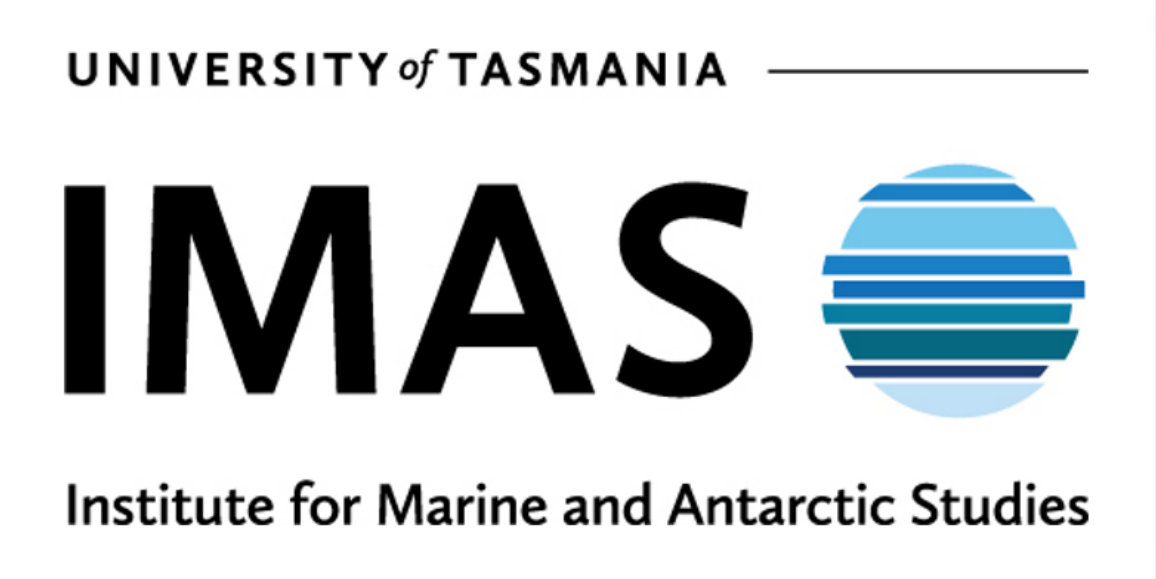Liver proteome response of pre-harvest Atlantic salmon following exposure to elevated temperature.
Atlantic salmon production in Tasmania (Southern Australia) occurs near the upper limits of the species thermal tolerance. Summer water temperatures can average over 19 °C over several weeks and have negative effects on performance and health. Liver tissue exerts important metabolic functions in thermal adaptation.
02/01/2018
THEMES / CATEGORIES
Health and Welfare
TAGS
climate change | disease
TSGA IPA: Comparative susceptibility and host responses of endemic fishes and salmonids affected by amoebic gill disease in Tasmania
Scientists at the Institute for Marine and Antarctic Studies have completed a two year experimental project on a globally emerging fish disease. Dr Mark Adams and co-investigators Dr Andrew Bridle and Professor Barbara Nowak investigated the comparative susceptibility and host responses of various endemic and salmonid fishes to amoebic gill disease (AGD).
02/01/2016
THEMES / CATEGORIES
Health and Welfare
TAGS
agd | climate change | disease | physiology
Comparative susceptibility and host responses of endemic fishes and salmonids to amoebic gill disease in Tasmania (Feb 2016) – (PDF File 12.0 MB)
Scientists at the Institute for Marine and Antarctic Studies have completed a two year experimental project on a globally emerging fish disease. Dr Mark Adams and co-investigators Dr Andrew Bridle and Professor Barbara Nowak investigated the comparative susceptibility and host responses of various endemic and salmonid fishes to amoebic gill disease (AGD).
02/02/2016
THEMES / CATEGORIES
Health and Welfare
TAGS
agd | climate change | disease
Aquafin CRC – Atlantic Salmon Aquaculture Subprogram: environmental control of growth and early maturation in salmonids
Ambient environmental conditions mean that the Tasmanian salmon industry will always suffer from high maturation rates due to its high water temperatures and increased light intensity. Additional artificial lighting in Tasmania has been shown to reduce maturation by up to 30%; increase growth rates significantly; and delay maturation by 8 weeks (Porter et al., unpublished).
06/01/2009
THEMES / CATEGORIES
Health and Welfare
TAGS
climate change | maturation | physiology
Seasonal forecasting for decision support in marine fisheries and aquaculture
The production of marine protein from fishing and aquaculture is influenced by environmental conditions. Ocean temperature, for example, can change the growth rate of cultured animals, or the distribution of wild stocks.
04/01/2016
THEMES / CATEGORIES
The Environment
TAGS
climate change | Modelling | planning and management
Scoping Study into Adaptation of the Tasmanian Salmonid Aquaculture Industry (Dec 2008) – (PDF File 1.3 MB)
This scoping study was conducted under the Australian Government’s National Agriculture & Climate Change Action Plan: Implementation Programme1 which identifies and supports initiatives for coordinated action on climate change.
12/01/2008
THEMES / CATEGORIES
The Environment
TAGS
climate change
Nutrient and Phytoplankton Data from Storm Bay to Support Sustainable Resource Planning.
This project has established a basline assessment program for water quality and productivity in Storm Bay, and collected environmental data monthly for 12 months. These data are important towards understanding climate variability and assessing the longer term impacts of climate change in the region.
08/01/2011
THEMES / CATEGORIES
The Environment
TAGS
climate change | nutirients | phytoplankton | planning and management | storm bay | Water Quality
Atlantic Salmon Aquaculture Subprogram: Forecasting ocean temperatures for salmon at the farm site.
Information about the future will be useful if decisions can be modified on the basis of that information. For a range of industries, environmental conditions can impact on business activities and hence profitability.
10/01/2011
THEMES / CATEGORIES
The Environment
TAGS
climate change | Modelling
Liver proteome response of pre-harvest Atlantic salmon following exposure to elevated temperature.
Atlantic salmon production in Tasmania (Southern Australia) occurs near the upper limits of the species thermal tolerance. Summer water temperatures can average over 19 °C over several weeks and have negative effects on performance and health. Liver tissue exerts important metabolic functions in thermal adaptation.
02/01/2018
THEMES / CATEGORIES
Health and Welfare
TAGS
climate change | disease
TSGA IPA: Comparative susceptibility and host responses of endemic fishes and salmonids affected by amoebic gill disease in Tasmania
Scientists at the Institute for Marine and Antarctic Studies have completed a two year experimental project on a globally emerging fish disease. Dr Mark Adams and co-investigators Dr Andrew Bridle and Professor Barbara Nowak investigated the comparative susceptibility and host responses of various endemic and salmonid fishes to amoebic gill disease (AGD).
02/01/2016
THEMES / CATEGORIES
Health and Welfare
TAGS
agd | climate change | disease | physiology
Comparative susceptibility and host responses of endemic fishes and salmonids to amoebic gill disease in Tasmania (Feb 2016) – (PDF File 12.0 MB)
Scientists at the Institute for Marine and Antarctic Studies have completed a two year experimental project on a globally emerging fish disease. Dr Mark Adams and co-investigators Dr Andrew Bridle and Professor Barbara Nowak investigated the comparative susceptibility and host responses of various endemic and salmonid fishes to amoebic gill disease (AGD).
02/02/2016
THEMES / CATEGORIES
Health and Welfare
TAGS
agd | climate change | disease
Aquafin CRC – Atlantic Salmon Aquaculture Subprogram: environmental control of growth and early maturation in salmonids
Ambient environmental conditions mean that the Tasmanian salmon industry will always suffer from high maturation rates due to its high water temperatures and increased light intensity. Additional artificial lighting in Tasmania has been shown to reduce maturation by up to 30%; increase growth rates significantly; and delay maturation by 8 weeks (Porter et al., unpublished).
06/01/2009
THEMES / CATEGORIES
Health and Welfare
TAGS
climate change | maturation | physiology
Seasonal forecasting for decision support in marine fisheries and aquaculture
The production of marine protein from fishing and aquaculture is influenced by environmental conditions. Ocean temperature, for example, can change the growth rate of cultured animals, or the distribution of wild stocks.
04/01/2016
THEMES / CATEGORIES
The Environment
TAGS
climate change | Modelling | planning and management
Scoping Study into Adaptation of the Tasmanian Salmonid Aquaculture Industry (Dec 2008) – (PDF File 1.3 MB)
This scoping study was conducted under the Australian Government’s National Agriculture & Climate Change Action Plan: Implementation Programme1 which identifies and supports initiatives for coordinated action on climate change.
12/01/2008
THEMES / CATEGORIES
The Environment
TAGS
climate change
Nutrient and Phytoplankton Data from Storm Bay to Support Sustainable Resource Planning.
This project has established a basline assessment program for water quality and productivity in Storm Bay, and collected environmental data monthly for 12 months. These data are important towards understanding climate variability and assessing the longer term impacts of climate change in the region.
08/01/2011
THEMES / CATEGORIES
The Environment
TAGS
climate change | nutirients | phytoplankton | planning and management | storm bay | Water Quality
Atlantic Salmon Aquaculture Subprogram: Forecasting ocean temperatures for salmon at the farm site.
Information about the future will be useful if decisions can be modified on the basis of that information. For a range of industries, environmental conditions can impact on business activities and hence profitability.
10/01/2011
THEMES / CATEGORIES
The Environment
TAGS
climate change | Modelling




